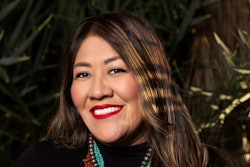As Americans’ perception of higher education continues to slide, research is showing that the youngest are the most skeptical. In a 2022 poll by Morning Consult, only 41% of adults from Generation Z—those born between the mid-90s and the late aughts, —said that they tended to trust U.S. colleges, 14 points lower than the rate of Baby Boomers.
Now, a new report from ECMC, a nonprofit focused on educational opportunity, has added texture to these findings by showing that although Gen Z does value learning, it views higher education predominantly in terms of career goals and future income.
The report, based on a national survey of over 1,000 high school students, found that 90% said that their desired career was an important factor in their post-high school path, the most common answer. 88% mentioned how much money they could make over the long term, and 82% said whether there was a direct path to a job. 80% cited the cost of tuition.
When asked what was most important in deciding what to do after high school, the most common answer was, “I need to understand different careers available,” followed by “I need to be able to feed myself,” and “I need to have reliable transportation.”
 Dr. Corey Seemiller, professor at Wright State University and co-author of Generation Z Goes to College
Dr. Corey Seemiller, professor at Wright State University and co-author of Generation Z Goes to College
“It’s just so expensive to go to college,” she said. “A lot of Gen Z-ers saw Millennials just saddled with student debt, and it’s kind of ambiguous whether there’s a solution to it. A lot of Gen Z-ers are like, ‘Yikes.’”
However, 84% of Gen Z said that they planned on receiving higher education at some point, and nearly two-thirds of respondents said that they believe that education after high school is necessary. This is an increase of 20 percentage points from an ECMC survey done in January 2021, at the height of the pandemic.




















